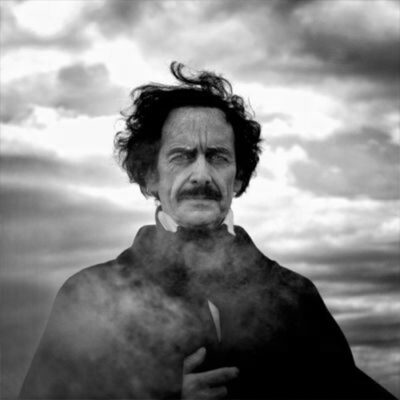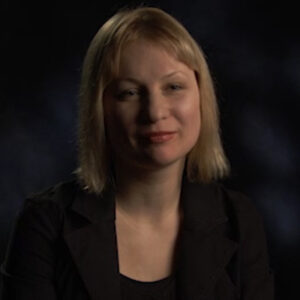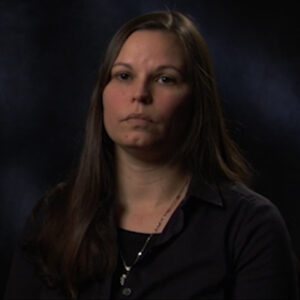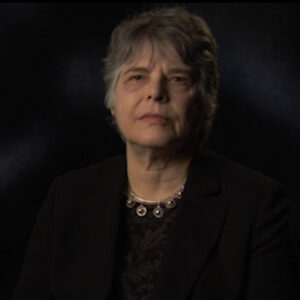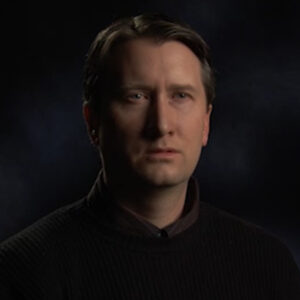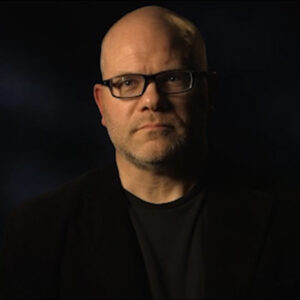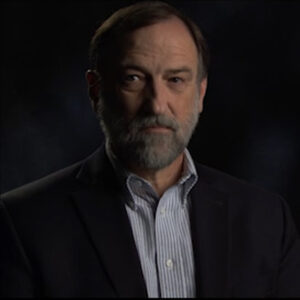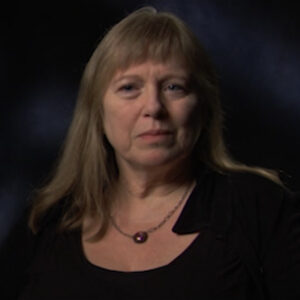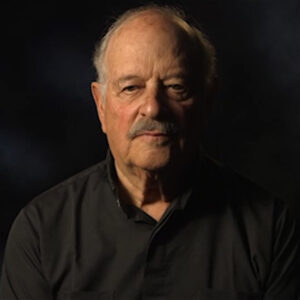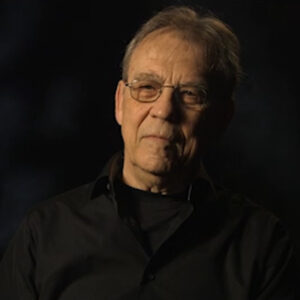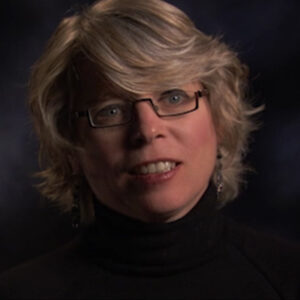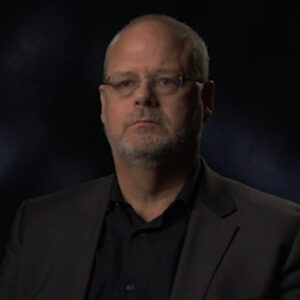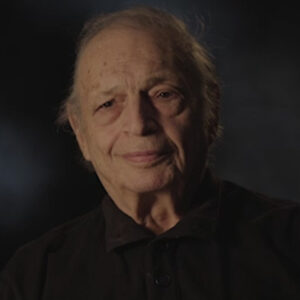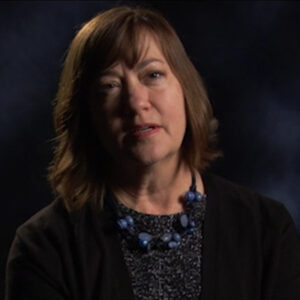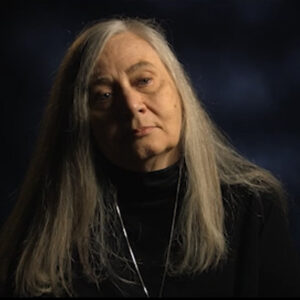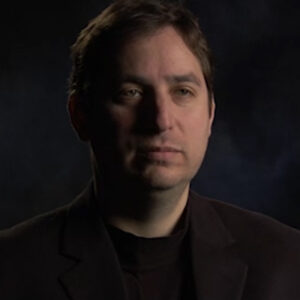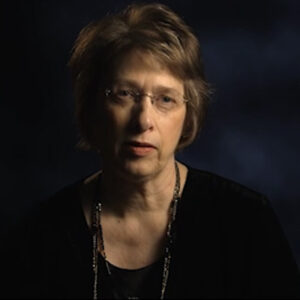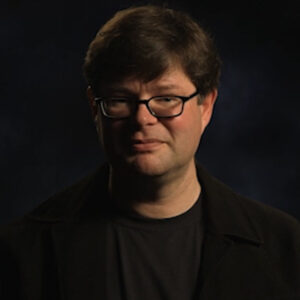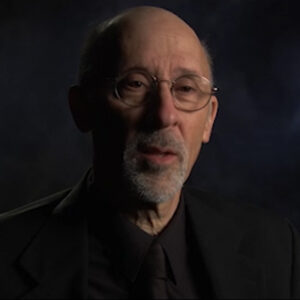Speaker Can you talk about the very young when when do you see people beginning to become a real poet, have a voice that is a mature, poetic voice?
Speaker Well, that’s a different question than the young poet, probably. But his interest in poetry began very early on as a teenager, in fact. And he was very fond of Byron, an interest that his foster father, John Allen, didn’t particularly enjoy or support.
Speaker Essentially, when when Poe left Richmond after his falling out with Allen, he ventured off to Boston and it was in Boston. They published his first book of poetry, Tamerlane and other other poems, and he published it as a Bostonian. And I think he was he was going there for a couple of reasons. One, because he wanted to make his name in the world. He had poetic aspirations. And to I think he went to Boston because that’s where his mother had performed on the stage a lot. As a poet, she had performed a great acclaim and in a way, he was returning home. It wasn’t the kind of homecoming that he was expecting, I think. But he he signed the work as a Bostonian and he had a number of ambitious poems in it, like Tim Tamburlaine and others. And when he eventually failed to be able to earn a living and he joined the army, enlisted as a great Perry, he continued to write poetry. And his next book was Olara of the Center and other and other poems. Anyway, at the beginning, he al-Assaf was like Tamerlan and that was a much it was a longer poem and probably as as as Hofman pointed out, his most ambitious failure. He called it a jumbo production. And it’s one that follows in a in a Miltonic vein. And of course, Poe gained much more traction and was much more successful with the short lyric poetry. And I think that is what he perfected over over the course of his life. And people argue the merits of Poe’s poetry. But, you know, poems like to Helen, Helen, that beauty is to me like those. And I see in parts of your for example, is is an example of a very tight, beautifully crafted poem. And so there was there’s definitely a movement away from from the longer poems to the to the shorter poems. And I think his his maturity comes through as much in the sound of his poetry as in as in the words of the that he uses in the poems. And it’s the sound of the poetry that resonated so well with Charles Baudelaire, for example. So I have an interest in in Baudelaire and his translations of Poe. One of the things that I find interesting is that Butler dedicated his most vital years to the translation of Poe’s works. And when it was all said and done, he had produced five volumes of translations of Poe. What he did not include in his translations were the poems of Edgar Poe, and with a few exceptions, that is, he translated the the poem to my mother, the one that Poe wrote later in his life that he dedicated to Maria Klamm. And he used that as the dedicated poem to the to the first volume to the to the east, to our extraordinary. And he translated the poems that were embedded with in other words.
Speaker So for example, he translated the Conqueror worm, he translated the haunted palace, and he also translated The Raven in the philosophy of composition. Now with that particular poem, he translated it for two other French publications beforehand, the Peiyi and another publication. I can’t I can’t remember. But he did include them and I think so. The point I’m trying to make here, essentially, is that Baudelaire had a reverence for Poe as a serious poet and he being a great poet himself. Baudelaire was cognizant of the importance of sound and poetry, and it would do some. Violence to the poetry where he to translated into verse and so Butler’s translations are prose translations within the work. Now, the French professor Claude Pissoir, speculated in a note at one point that Poe was ah that Baudelaire was planning to produce a volume of Poe’s poetry. But that project was never realized.
Speaker Great. Thank you. Well, we covered a lot.
Speaker Sorry, I just want that you had a brain dump. OK, sorry.
Speaker What I’d like to do is just go back and do a couple of those again and OK, discrete pieces because there are some really nice things. So when when I went to Boston and the city of his birth. Could you just mention that again.
Speaker But but mention too that he did.
Speaker Do you remember the story of his mother lives that having left him a little watercolor that she had done of the city of Boston? Absolutely. If you could maybe mention that, you know, when after Poe had his falling out with John Allen, he went to Boston, which he which he knew only from whatever however you might want to say. Sure. But that was great. Thanks. We also I want to go back and redo a couple of things, because right when you started, we got a bunch of noise outside.
Speaker Oh, OK. Probably got picked up on the microphone, so you never know. But thank you guys. Is that the major jackhammering is stopped.
Speaker But he said we might don’t acknowledge that you already said any. OK, I just assume you’re saying it for the first time.
Speaker So when Poe left, why do white people leave Richmond and where did he go and what did he do when he got there after post falling out with John Allen?
Speaker And let me back up.
Speaker What’s a good way to frame this? It’s a good way to start. Well, when he left Richmond after his fall out with John falling out. Right. OK, so guys will set everything else up. All right.
Speaker Right. OK. After his falling out with John Allen Poe left Richmond and he went to Boston, the city of his birth. And I think that he was drawn there for two reasons. One, Poe had poetic aspirations and Boston was considered. The Athens of America is the center, one of the major centers of literary culture at the time. But more importantly, Boston was a city of his birth and the place where his mother, Eliza, had received accolades on the Boston stage. Both of his parents had acted in Boston. Poe, in fact, returned to a plight. OK, I’m messing this up. OK, you are doing great. OK, that’s fine.
Speaker And what’s the other part of the question I’m curious about? If you could just make reference to the little part. Oh, yes. The painting rather. Other people have it so you can. Oh, absolutely. Yeah. You know, he of course knew Boston. Right. Of so.
Speaker There were two items in Postposition that he cherished above other all other things, things.
Speaker I’m too self-conscious. Sorry, I know it’s it’s really weird, it’s kind of, you know, odd and, you know, you feel OK.
Speaker Do you want feel free to drink water and take a break because we’re OK, so to speak. OK, ready? Yeah.
Speaker Po had a couple of items in his possession up to his final day that he cherished, both of which came from his mother, Eliza. One was a locket with her with her portrait, and the other was a watercolor of Boston Harbor 1888. And on the back of that watercolor was an inscription to my little son, Ed, on the back of it. There was a description to my little son, Eddie Mahe. Always remember Boston, the city of his birth, the place where I had my greatest and warmest friendships. I can’t remember the the exact phrasing of it. She she charged him always to remember Boston. The city of his birth, where I had my dearest and warmest friendships, it was a place where Eliza felt accepted and where she felt where she felt comfortable. And I think when Poe was returning to Boston, he was trying to recapture that idea. He was trying to trying to return home. And when you think about it, he was leaving behind the Allen household. He had had a good relationship with his foster mother, Frances Allen. By all accounts, she was a little distant, but there was some relationship there. But his relationship with John Allen was an acrimonious relationship. He never felt that he belonged. The Allens never formally adopted him. And so when Poe was returning to Boston, I believe he was trying to reclaim his birthright. In a way, he was trying to reunite with that past that that he didn’t have. And I can only speculate, as Arthur Hobbs and Quinn speculated in his critical biography, that when Poe went to Boston, he likely sought out venues that would have been associated with the life of his parents. I would certainly, if I were in impose situation and and at the same time, his mother had been an artist and had been a successful artist. And Poe himself wanted to be a successful artist. He wanted to pursue poetry.
Speaker That’s wonderful. Thank you. So I hope some of that. That was great. And by the way, the more you speculate, the better for us, OK? OK, you know, and it’s fine to say I can only speculate or of course, you don’t know for sure, but I hesitate to speculate.
Speaker But I will I will speculate in an informed way.
Speaker That’s fine. Formerly and a totally conditional way to assume. It’s just that it helps. You know, for viewers, it’s like, oh, yeah, I guess I would feel that way to you know, it really helps rather than have this kind of scholarly distance where when scholars who actually do know stuff are willing to be a little more personal. Always nice.
Speaker So what were his main literary influences when he was this young aspiring poet?
Speaker Principle influence was Byron. He was probably influenced by Byron more than any other.
Speaker And there are other writers like this. You’re not going to get a lot of good information from me about this. I’m thinking like more Thomas, more la la la la Rokke. Okay. These were writers who read another influence. I mean, he was well-read in classical literature, both in Syria and Greek and Roman literature and also classic British literature. He was well acquainted with Shakespeare, certainly Milton. But in a more contemporary way with Byron, and not only was he enamored with Byron’s poetry, but he was enamored with Byron’s life, which is important when you look at some of his personal choices. For example, his. Swimming the James River because Byron had swum the Hellespont and had taken great pride in his daring do, and many people don’t realize Beppo is a very athletic person and he was a very strong swimmer. And I don’t remember how many miles it was that he that he swam on the James River, but he had a terrible sunburn when it was all over with. And so people did talk about how impressed they were that Poe achieved this feat later on in leading up to the biographical article that James Russell Lowell wrote about Poe, and that was published in the 1845 issue. Graham’s magazine, Poe, had supplied Lowell with certain information about his life and some of that information, most of the information was true, but some of the information was embellished, fabricated, created for the occasion. And one one fabrication was the fact that Poe claimed to have left the country as a young man and fought for Greek independence.
Speaker And then from that point, he went to St. Petersburg, where he became embroiled in some kind of situation and had to be extracted by the American ambassador. So in that way, he was trying to create a romantic persona of himself. And of course, Birhan, in fact, did fight for Greek independence. So he was aligning himself with Byron.
Speaker You know, I do love Byron, the bad boy. Exactly. Mad, bad and dangerous to know. Yeah. Yeah, that’s right.
Speaker So when Poe when he gets back to Baltimore after getting well in between the Army and West Point, he’s in Baltimore. But I’m thinking more when he comes back after West Point, he’s been thrown out now. West Point gotten themselves thrown out.
Speaker And I think that’s when he writes in the letter, I am young, not yet 20 am a poet of deep worship of all beauty can make me one to remember that quote, that letter that comes that you write that to John Neal.
Speaker Yeah, OK. Yeah, I do remember that letter.
Speaker Can you paint a picture for us of that, that moment in post life. There he is in Baltimore. His military career did not pan out and he’s just determined to be to be this poet.
Speaker And maybe what maybe that was before West Point, the letter John Miller, you remember.
Speaker So I looked it up. I think that’s from 1829. If I.
Speaker Yeah, it at least not yet. Twenty. Yeah. Yeah. OK. Oh anyway, I guess maybe it doesn’t matter so much. Exactly, but if you could just paint a picture for us of this young man, what is he up against. What does he want to do, what is he up against in terms of the realities of the economics of the period, PO is facing some very difficult realities.
Speaker That is, he had been brought up in a very well-to-do household, all the more so when John Allen inherited his uncle’s estate. John Allen was fabulously wealthy at that time. Most people in America who were great poets were people who came from families with means Poe didn’t have that kind of support and I think that was difficult for him. I mean, his his decision to go into the army was one of desperation. When he then later when he sought admission to West Point, he saw that as more so as an opportunity to get back into John Allen’s graces, perhaps to have some kind of livelihood so that he would be able to write poetry. But he never saw the army as a career, although he was very successful as a soldier when he was an enlisted soldier. But it wasn’t something that he wanted to do long term. He wanted to be a poet. But John Allen was a very practical man, businessman not keen on Poe’s poetic aspirations when he wrote that letter.
Speaker We need to fact check this just to make sure we are OK when Poe wrote the letter. That you just quoted. He was writing to John Neal, who at that time was a well-known writer from Portland, Maine, and John Neal was the editor of different publications.
Speaker And I believe that at that time he was the editor of the The Boston Yankee.
Speaker What is it?
Speaker Doesn’t matter.
Speaker OK, so he was writing he was writing that letter to John Neal, who was a prominent literary figure and an editor of magazines, the Northeast. It was John Neal who gave Poe his first real encouragement as a poet. And there are two such letters, both of which were published in the magazine Neil was editing at the time in which Poe sent Neal some of his verse. Neal commented favorably on it and and fueled his youthful poetic aspirations. And it was Neil’s encouragement of Poe that really helped Poe to weather some of the difficult circumstances and in fact, later.
Speaker Even after Poe’s death, John Neal was one of the people who came to pose defense when Rufus Griswold had written a scathing memoir. A lot of controversy about Poe, the man. There were people who came to his defense and John Neil was one of those people. John Neil lived a very long life and he always remembered Poe very fondly.
Speaker That’s nice. It’s a great story. It’s yeah, it’s very sweet.
Speaker So he’s he’s been living in Baltimore with with Muddy Rye and and little Virginia and his brothers there for a while until his brother dies of alcoholism or whatever.
Speaker Can you can you just describe and if you don’t feel comfortable doing this, but describe the household and the relationships and how, you know, even though they were dirt poor, it probably felt like the first family he’d had when he was living in Baltimore with his with his family, his whole family.
Speaker He did feel a sense of belonging. And I think that the time that he spent with his brother was very important to him. They had something in common when they had a couple of things in common that were really important. I mean, they had family. They had this dim memory of their mother.
Speaker We have no idea of what they what they talked about. But I’m sure that they tried you know, they they talked about things that were important to both of them. And also his brother wrote poetry. His brother probably went to see and had certain experiences that he shared with Poe. And I think some of that probably filtered through and impose on writing and may, in fact, have contributed to some of his fanciful alterations to his own autobiography, the information he supplied to others about himself.
Speaker Great. Thanks.
Speaker So as he moves along and gets his first break with the Southern Literary Messenger and career wise, he he really does seem to see himself on this mission to elevate American literature to to raise the standards, raise the bar. Yeah. Both with his own work, but also through his criticism. Yes. Can you talk about that a little? Why why was it important? Why maybe just mention the fact that we were still a young country.
Speaker What literary tradition there was was very unformed. Right. What what was the vacuum he was trying to step into and fill?
Speaker In many ways, America was still an experiment at that time. We were a young country. The United States was trying to.
Speaker Mr..
Speaker And think of the best way to say it.
Speaker Sorry, this is it’s all I need to get I need to pretend like I’m just talking to one of you.
Speaker You’re the one in the in the hot seat. Yeah, I feel kind of hot. Take the time you need to figure it out. OK, so this is an important question.
Speaker When Poe was riding for the Southern Literary Messenger and for other publications later on, he was he was working at a time when America was forming its own literary identity. And while there were perhaps, you know, regional.
Speaker I can’t say no. Well, OK, first part. OK, yeah.
Speaker Poe is critical of authors who capitalized on American themes to create works of literature that were American know just by including American elements, didn’t make a great piece of literature. And yet there were many people around who, you know, praised works because they dealt with American themes. Poe’s conception of literature transcended national boundaries. Poe was interested in a pure form of of art. His interest in poetry was with beauty, solely with beauty. He would go on to say later that poetry is the rhythmical creation of beauty. Now, to go back to his his work for the literary magazines, Poe was known more broadly, or Poe was known in America first as a reviewer of literary works. And he gained a reputation for being a very harsh, very severe critic and earned the name the Tomahawk Man. And while Poe could be petty in some of his critiques, at the same time, Poe wanted to hold literature to a high standard because he knew that on the world stage, America was looked down upon. In America, the writers were emulating British models. And then with the with the lack of international copyright laws, British writers works could be pirated as soon as they reached our shores, which made it very difficult for American authors to get any kind of traction, to be able to publish anything, to get book contracts, basically because people wanted to read the British authors and not the American authors. So everything was set up against American authors being financially successful. That’s another reason why one almost always had to be independently wealthy to pursue a career in poetry.
Speaker Poe was able to persevere under remarkable, remarkable odds as a as a writer because he was so hard working. There are a lot of misconception about me. There are a lot of misconceptions about PO being an alcoholic, a drug addict. Many of these things came out of Griswold’s memoir and. In fact, Poe was someone who was highly industrious and read books that most of us don’t even know today.
Speaker He read them, took them very seriously, wrote thoughtful critiques of them. He took poetry very seriously.
Speaker All right. Thank you. That was great. OK.
Speaker Yeah, and in terms of, you know, take you take a drink. You’re doing great. Yeah, this is good. I’m not even really looking at you. I’m looking down at my papers, OK?
Speaker Oh, there are three of you here. I don’t know the way we thought about making them sit in the other room, but no, it’s fine. It’s fine.
Speaker It’s just usually we don’t have an audience lined up quite all right. It’s kind of a smaller room. Yeah, it’s OK.
Speaker Well, you know, Eric, too, you often tell people just think that your pretend you’re like teaching to a bunch of middle schoolers because that’s kind of. Yeah.
Speaker What they’re saying about this whole posthole thing, about the heresy of the didactic and about how poetry you alluded to in the last answer. But a little more about, you know, when when does he start?
Speaker Expressing this kind of idea that that really poetry has to be this pure form and that there’s no place for didacticism in poetry and there’s no place for political or any kind of whatever teaching in poetry. It’s not about that. When does that start and where does that come from and how strongly does he feel about that? OK.
Speaker Throughout his reviews of writers works, Poe begins to formulate an aesthetic theory in which he. Rejects the notion that the purpose of literature should be to teach, so his he is not interested. He was not interested in works that were didactic, but rather in works that moved the soul. As he said, these ideas that were expressed intermittently in the criticism found their way into his published statements on on on criticism like, for example, the philosophy of composition in which he talked about the composition of the raven. While there may be some tongue in cheek going on there, nevertheless, there are many concepts within that work that I’m sounding very academic.
Speaker Sorry. Let me again or you can just start up. Let me just let me just think again.
Speaker In a couple of his reviews of Longfellow, for example, he he criticizes Longfellow for being overly didactic, with being concerned with the with teaching a moral or teaching a lesson. And he sees.
Speaker He sees truth and beauty as oil and water, essentially. So he. Ideas formulated in those reviews become I’m not saying this well, I’m sorry. Well, maybe we should just go back to I’m going to change my mind. Well, you got the question.
Speaker I mean, OK, get it going. So though, as opposed developing this identity, this force as a critic, what territory is he staking out and what what mission is he on in this criticism?
Speaker As Paul is beginning to develop his literary critical ideas in these pieces, in these reviews of the sorry, sorry, OK, great, you’re now. As PO. Reviewed writers of his time, he began developing his own literary theory, which stood in stark opposition to the prevailing ideas of the time. That is, that poetry should teach a lesson, that it should be more or less taken. The best example of. That would be Longfellow and his his writing poems, very critical of Longfellow. I think that Poe had some admiration for Longfellow’s talents as a poet, and I think that.
Speaker That admiration on some level drove his criticism of Longfellow because he believes, I think, that Longfellow could be a better poet were he not enthralled by British models and if he felt that he was slavishly following the prevailing tastes in literature at the time and was creating the dominant mode of poetic expression at the time, that poetry should teach a lesson. It should make us feel good. Poe’s poetry, on the other hand, and his discussion about poetry, his ideas about poetry put beauty at the center.
Speaker And he also Poe was concerned with craftsmanship. So the for Poe sound and meaning went hand in hand. You couldn’t you couldn’t separate one from the other.
Speaker Do you mind saying that over again just for Poe sound and meaning when you hand in hand for Poe, sound and meaning went hand in hand.
Speaker OK, yeah, you wanted to capture that or no duty, and that was our fault, we bumped the camera. OK.
Speaker When you were saying that, so that’s all you could just start up again for sound and meaning went hand in hand and then, OK, you want some proposed sound and meaning went hand in hand.
Speaker Po said that poetry is the rhythmical creation of beauty and that’s a very different concept of poetry than what we get in in Longfellow’s for so many Longfellow’s contemporaries and poets leading the charge in this respect. And it didn’t make him very many friends because he was very critical of works of literature whose goal was to teach a lesson he was interested in in moving the reader.
Speaker And so when he writes about what he considers the most poetical topic, the death of a beautiful woman is not that he has this morbid interest in death or he’s in thrall with death. Necessarily what he means by beauty is that which move can move us to tears. So in his explanation of the creation of the Raven, that’s something that he that he focuses on and that’s often misunderstood. Now, of course, it’s many of our misunderstandings of Poe that have contributed enormously to oppose popular reception today. It’s OK because literature can be read in a lot of different ways. But Poe is a very serious, very Poe is a very serious artist. And some of the great European poets like Charles Baudelaire, Stefan Mildmay, Paul Vallauri, all respected Poe for his poetic ideas and for his championing of sound and his championing of beauty in poetry. And those central conceptions were ones that would contribute to the art for art’s sake movement. This is a very different conception of poetry than than the didacticism of antebellum American letters.
Speaker Great, thank you. I was very.
Speaker And along those lines of what Jen said about trying to get a sense of this musicality, the sound to do any quotations or examples leap to mind, I should have had my collective action.
Speaker Well, I can add I have it all. You want to go on the Internet? No, I don’t need it. So I think one of the most beautiful poems is to Helen. And it’s one that it’s a poem that’s classically inspired. It’s one that deals with a central theme in imposed verse and also in his life.
Speaker And it’s about going home, about pursuing knowledge and the poem. Well, OK, so the poem goes this way, Helen.
Speaker My beauty is to me like those Nici and parks of your that gently or a perfume. See the weary way worn want or bore to his own native shore on desperate seas. Long want to roam missing a line.
Speaker It’s ok. Yeah.
Speaker All season long. Want to roam the hyacinth hair. Yeah.
Speaker Like classic face the glory that was Greece and the grandeur that was Rome lo and yon brilliant window netsch. How a statue like I see these stand the agot lamp within thy hand psyche from the regions which are Holy Land. And you can cut the parts that don’t work well, so what is that, what’s going on there?
Speaker What’s he doing?
Speaker So so there we have. Well, it’s a beautiful image you have.
Speaker Thy beauty is to me like those I see in parks of yours, the Charnley or perfume see the wonder portraits on short so that it the poem is one that appeals to the senses.
Speaker It’s one in which the in which Helen is statue like she’s stable. She is eternal in a way. And the, the, the speaker is, he’s pursuing her, he’s following the light.
Speaker I’m not doing a good job of getting this, but I wonder what parts of it do we want to talk about.
Speaker I think you I think you did put your finger on the beauty of it, which is great.
Speaker How about can you talk a little bit about who Poe wrote it for?
Speaker And there’s some debate. Oh, right. I guess. Right. And and to me, what’s interesting is so Poe writes beautiful classical poem. I mean, it really is it is a beautiful gem of a poem. And yet he kind of like uses it over and over again to try to woo women to flirt. Oh, goodness. Yeah.
Speaker I mean, he claims it was written for Jane Stanard, but then later it’s rewritten for someone else. So I don’t know, maybe I could talk about that. Oh, so yeah, it’s art for art’s sake, unless you want to use it to whatever the chick’s right.
Speaker Yeah.
Speaker It is about finding a holy land for him, finding the eternal, which is often grounded in a representation of beauty and probably in this case, Jane Stanard. This is a childhood friend’s mother, someone he admired, someone who whom he loved and who loved him, someone who meant a lot to him in the absence of his mother and in the coldness of the Allen household. She was a friend to him. And so in that way, I think that that the figure of Helen is perfect in this poem. Now, it’s also a poem that Poe uses in different periods of his life, and he does give it to other people like Sarah Helen Whitman. While it was not written for Sarah Palin, Whitman, it what’s the best way to put this? The poem may be about Jane Stanard on some level, but the poems also about a lot more. And it’s about what other women might represent to him or the idea of these other women would represent him or what what beauty is or what his relationship to beauty is. So it becomes much, much more than the than it’s biographical origins.
Speaker Great, thank you. That was OK.
Speaker I’m sorry, all that time I gathered those great.
Speaker So how are we doing time wise, another 10 minutes or something? Great, let’s talk about the Boston Lyceum. OK.
Speaker I don’t want to so just so you know, the way we’ll do it is we’ll have it set up. You don’t have to give all the background fact that he’d become a lecturer and he was famous now because of the Ravens ideas and demand. But maybe if he could just start with when Paul was invited to speak.
Speaker OK, go ahead. It’s worth noting that.
Speaker Hang on a second. It’s worth noting that when Poe was invited to the Boston Lyceum to deliver a lecture, that he had had some hand in securing the invitation, that in fact, there’s there’s a back story to this pope very much wanted to speak in Boston, and he had cultivated a relationship with James Russell Lowell over a period of time. Lowell was on the committee, the Boston Lyceum Committee, or he was connected to the Boston Lyceum Committee. And he was unable to secure him an invitation in 1844. But he was able to secure one in 1845 when Poe went to the Boston Lyceum. I think in his mind, it was an opportunity for him to return to the city of his birth and to it may seem like a stretch, but he he wanted to return to the city that had so warmly received his mother keeping in mind the the the portrait and the watercolor that his mother had left to him, his mother’s injunction always to love the city of his birth and to remember the close friendships that she had there. Poe is returning to the stage, not only the stage, not not just a stage, but the very stage on which his mother had performed when he was a child, in fact, the very stage on which she had performed when he was in utero.
Speaker The building.
Speaker At the time that Poe went, there was the Odean that building had previously been the Boston or federal street theater. So his homecoming to Boston on that occasion was well represented, much, much more to Poe than than anyone would realize on the surface. And I think that factor contributed to pose particular anxiety on on the occasion. Now, what did Poe expect from that event? I think Poe is coming off of his greatest year. This was 1845. He had just published The Raven, which was an overnight success, and he was frequently called upon to give recitations of the Raven. He he was becoming known now as a poet, more so than as a critic. This was his great opportunity. However, on this occasion, Poe was not listed as the first person on the billing, but in fact was second. He was listed second to Caleb Cushing, who was the late ambassador to China, who lectured for over two hours before Poe even appeared on the stage. And so, as one can imagine.
Speaker The event in and of itself was anxiety producing on a very personal level for PO and on a professional level. Add to that the fact that he is playing second fiddle to a Bostonian, a very prominent Bostonian who gave a long winded speech. When Poe appeared, he felt the need to make justifications. He was thinking about Boston and he started talking about Boston’s literary values.
Speaker He launched into a diatribe about didacticism in poetry. Probably not the way to win over your audience. So the worst possible thing Poe could have done on that occasion was to begin his presentation by insulting the local luminaries, which is precisely what he did. The other thing was Poe had been invited to deliver a poem and it was expected that he would deliver an original poem on the occasion, poems filled with anxiety about this event and couldn’t produce a poem. So he.
Speaker Produced Ouroussoff, which was a poem that he had written as a very young man, and he delivered that poem to this audience, Nazaroff is of is probably one of those most difficult poems, one of his most opaque poems. It’s a poem that I believe has sort of Miltonic epic kinds of aspirations. And it was not the best choice for this audience.
Speaker In the aftermath of this event, people engaged in a war of words with some different critics about his performance on the occasion, and he stated that he delivered that poem as a hoax on the Bostonians and he added fuel to the fire by doing so.
Speaker However, I think that that there was a bit more to that to that poem and reading that poem and simply hoaxing the Bostonians, I think he chose the poem deliberately because it because of its intellectual content, because of its.
Speaker What’s the word I’m looking for?
Speaker He I think he chose the poem because he had a fit audience for that poem on some level and it just didn’t work out.
Speaker And so in typical Poe fashion, in this perverse fashion, he sort of he he undermines his own performance. However, the the the evening was not a complete loss because after after the initial.
Speaker Remarks about didacticism and after the long poem during which some people left, he was prevailed upon to recite the Raven and all was good.
Speaker He he was well-received. I think if Poe had been able to accept the applause and then to also to accept some of the criticism afterward and not take the bait, it would have been a normal evening. Everything would have been fine. But it was all exacerbated in that in that war of words afterwards.
Speaker And how much of that do you think had to do with his anxiety about his personal connection to that to that place?
Speaker So this is speculation on my part I’m interested in. Poe’s mother, her theatrical career and all that, so I think on this occasion. Pose anxiety, would you restate your cue?
Speaker Yeah, I guess I’m just sorry, just to have a sort of final coda on this, do you can you say whether or not you think that pose personal emotional anxieties about returning to the stage where his mother had performed? How did that create or did it create this problem?
Speaker I think that pose I think that pose personal now.
Speaker Yes, I mean, I just need to say it. Yes, I think that Po’s awareness of the fact that this was the very place where his mother had performed heightened his anxiety on the occasion, the the event was much more emotionally charged for Po’ than it would have been for any other.
Speaker Poet or politician or anyone appearing on the stage, there was there was that.
Speaker In a way, on that occasion, Poe is returning to Boston, as he had done as a young man, and this was another opportunity to be accepted in the city of his birth. So the stakes are much higher for Poe, I think, on that occasion.
Speaker And the event did not go the way that he wanted it to go.
Speaker Great. Thank you. Yeah, so know we should let you go, but one more. One more. OK. OK, we have all these wrap up questions we’re asking. OK, I’m trying to figure out which one. OK, I think because you’ve talked about Baudelaire and all that, that’s great.
Speaker Why is he so often appropriated by pop culture and why you know, why do artists generation after generation try to remake Poe and why do they so often conflate his biography with his works? I mean, that doesn’t happen to other writers.
Speaker No, not in the same way. And I remember there was a PBS documentary and Philip Glass was asked that question or something like that. He had very good response. I know we’re trying to get hold of Philip Glass. Kind of funny because that was 20 years ago, that film. So, yeah, it’s OK to do. Yes, that’s a good question.
Speaker But I can respond in a similar way, maybe in a Bulgarian way. And that’s a really rich question. I’m not I’m not an expert on pop culture, but.
Speaker Many of our misconceptions about PO. Come from Rufous Griswold’s scathing memoir of post life, and he did irreparable damage or almost irreparable damage to pose character and to our conception of Poe, the person was considered again.
Speaker You just pick up with and to our perception of the.
Speaker OK, so Rufous Griswold’s depiction of Poe in his memoir did irreparable damage to post reputation in in his lifetime and for generations to come, it wouldn’t be until the mid 20th century before people start started to look afresh at Poe and to realize that some of the letters that Griswold had used had he had tampered with them to cast Poe in a very negative sort of way.
Speaker It’s it’s natural for people to associate characters and work with the author, especially when the author was down and out.
Speaker I don’t know is that now one of the things that’s interesting is that while in America, while PO did not enjoy much popularity immediately after his death and and people were trying to defend his reputation, people like Sarah, Helen Whitman, John Nehal, other people wrote positive things about PO. It was in it was in Europe, in fact, that that Poe enjoyed greater popularity, largely due to Charles Baudelaire, who had become acquainted with Poe’s works through some other translations. And then he himself took on the task of translating Poe’s works into French. He was a very faithful translator of. He was also interested in the life of Poe and those negative qualities. Interestingly, some of the negative qualities attributed to Poe and looked down upon by an American reading public were some of the things that that Baudelaire embraced and even embellished in his own retelling of of Poe’s life. And it’s a very complicated matter about the sources of all of that. But essentially, Baudelaire saw Poe as the poet.
Speaker The poet who is who lives on the margins of society, who is down and out, and who, of course, would be, you know, crushed by the the the cold, materialistic, consumerist mentality of of America. And so what is an artist to do that? That was who Poe was for Baudelaire and Baudelaire could identify with that. So, of course, for him, beauty is the most important thing. There’s beauty that is eternal, that’s not found in this world. OK, so this world of the Rufus Griswold and that sort of thing.
Speaker So, yeah.
Speaker And now their pop culture, you should ask somebody who’s really into pop culture.
Speaker All right. And so then just why does Poe wonder why?
Speaker Why generation after generation to readers, new readers find him and love him?
Speaker Yeah, a lot of different ways to answer that.
Speaker Poe continues to appeal to a wide range of readers, from young readers to old readers, readers of every background and every nationality, as evidenced by the all the scholars who were at this conference from over twenty three different countries, which is amazing that people are reading and studying Poe in different countries.
Speaker I think, well, it’s as much the life as the poetry or the tales or anything else.
Speaker Poe lived in crushing poverty.
Speaker He he wrote great works of literature against the odds, he struggled. He was dedicated to his art. And I think I think that resonates with people. Of course, the fact that he wrote works in the in the Gothic vein, that makes him popular come Halloween. But different different people love Poe and read Poe for different reasons. So for both Baudelaire, Poe was a serious artist. He was someone who dedicated his life to beauty.
Speaker And that’s one of the things that I find interesting about pope.

